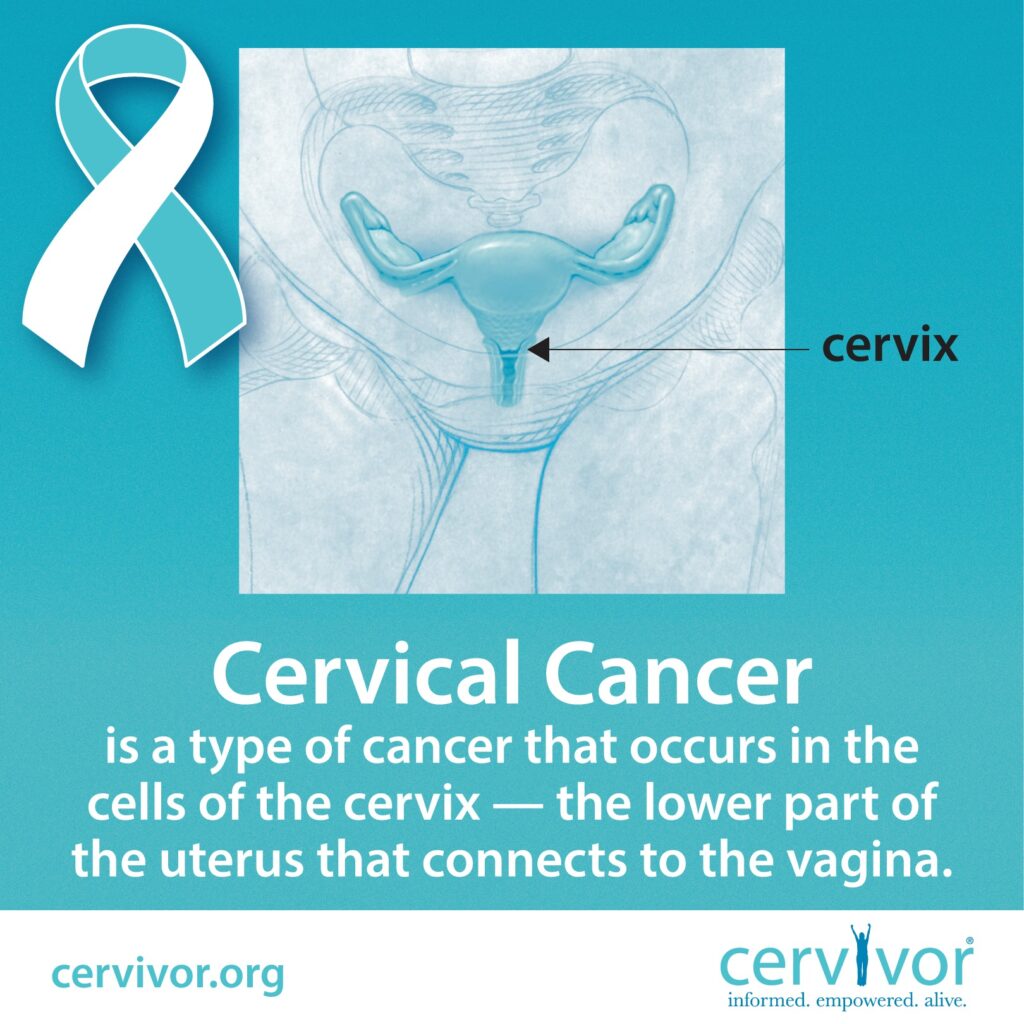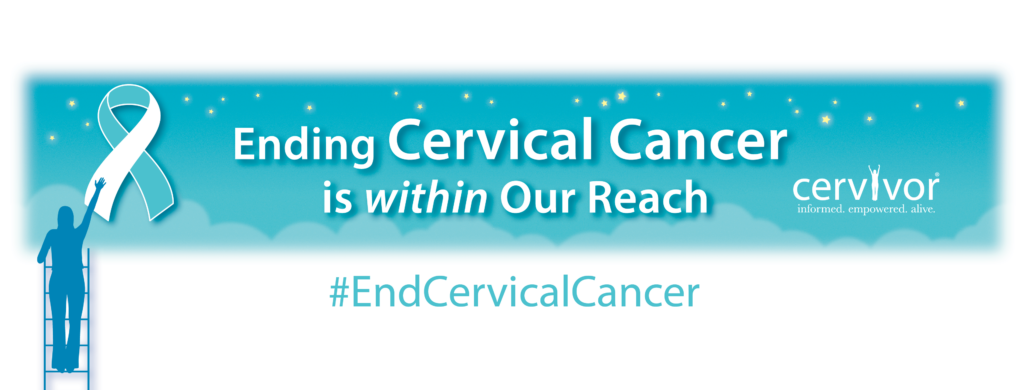January is Cervical Cancer Awareness Month. We at Cervivor, a global group of cervical cancer survivors committed to ending cervical cancer, want you to be aware of this: cervical cancer is completely preventable through vaccination and screening. This January, get familiar with these 5 things to know about cervical cancer prevention.

Know What Causes Cervical Cancer: HPV
- Nearly all cervical cancer is caused by the human papillomavirus (HPV), the most common sexually transmitted infection. Nearly 80 million Americans have HPV at any given time, and about 14 million become newly infected every year. In fact, most sexually active people contract HPV at some point in their lives. The virus spreads easily through skin-to-skin sexual contact; sex doesn’t have to occur for the infection to spread. Most types of HPV don’t post a health risk and don’t cause symptoms, so many people don’t ever know they have it. The good news is: more than 90 percent of all new HPV infections go away on their own, fought off by the body’s immune system. Yet for some women, HPV stay in the body, is not cleared by the immune system, and can lead to cell changes that result in cervical cancer.
Get the HPV Vaccine for Yourself and/or Your Kids
- HPV vaccines have been available in the United States since 2006. These vaccines protect against infection with the HPV types most commonly linked to cancer, as well as some types that can cause genital warts. The vaccine prevents HPV infection – and, as a result, prevents cervical cancer as well as prevents against other cancers related to HPV such as penile cancer, anal cancer, vulvar and vaginal cancer.
- The Centers for Disease Control recommends the HPV vaccine for girls and boys ages 11 to 12. At this age, the vaccine is administered in two doses spaced six to 12 months apart. Since this isn’t a school-mandated vaccine, parents need to be proactive and ask their pediatricians and family practice physicians for it.
- Older teens and adults also can receive the HPV vaccine. Immune response to the HPV vaccine in adults and older teens is different than in children, so recommendations are for a series of three doses, rather than two.
Keep Up with Pap & HPV Testing to Catch Any Early Pre-Cancers
- Cervical cancer progresses slowly, so don’t skip your pap test! Keeping up with your “well woman” health visits is a proven way to prevent cervical cancer. Certain “high risk” types of HPV cause the cells to progress from a pre-cancer stage to invasive cancer, but that progression can be slow so there is ample opportunity to capture cancer through screening before it develops. Be vigilant about seeing your gynecologist or family physician for Pap testing (which looks for abnormalities caused by HPV) and HPV testing (which looks for the presence of the high-risk strains on HPV).
The American Cancer Society reports that about 13,800 new cases of invasive cervical cancer are diagnosed each year in the U.S., and about 4,290 women will die from this disease. Worldwide those numbers are as high as 570,000 newly diagnosed and more than 300,000 die annually.
We at Cervivor, survivors of cervical cancer who are living with its aftermath, work to ensure that others do not suffer or die from this very preventable cancer. Screen. Vaccinate. Prevent cervical cancer. Spread the word.
